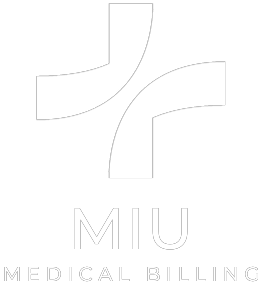In the ever-changing system of modern healthcare, efficient and accurate medical billing isn’t a luxury; it’s a necessity for every practice’s financial growth and success. As healthcare providers face a lot of administrative burden, strictness from insurance guidelines, and an ever-existing pressure to streamline healthcare services, it is essential to have systems that can record, save, and retrieve patient information used for supporting correct documentation, claims, and timely reimbursements.
Among the latest technology and tools are Electronic Medical Records (EMRs) and Electronic Health Records (EHRs). Although these terms are used simultaneously, they fundamentally vary from each other in terms of score, functionality, and operation. These differences are apparent, especially when it comes to medical billing.
In healthcare, EMR is mostly restricted to just one practice or provider and is used to track the clinical services and history of the patients within that particular environment. On the other hand, EHRs are designed to communicate data with different or multiple healthcare setups. This creates a more collaborative and comprehensive view of patient care. This specific difference has a huge impact on everything from data collection to coding to billing to performance tracking and reimbursement.
Whether you’re a healthcare provider, a medical billing company, or an administrative team, understanding the difference and importance of EMRs and EHRs is highly crucial. Having this knowledge plays a huge role in ensuring regulatory compliance, improving revenue cycle management, improving coding accuracy, reducing claim denials, and gaining greater administrative efficiency. Let’s break down how to choose the right system, its use, and the differences in detail.
An EMR (Electronic Medical Record). What is it?

An Electronic Medical Record (EMR) is the digital version of the conventional or traditional clinical charts used in private healthcare clinics. It contains clinical notes for every patient within that specific organization or practice.
Major Components of an EMR
- Patient Personal Data and Medical History
- Diagnoses and treatment modalities
- Laboratory and diagnostic imaging results
- Clinician and nurse notes
- Medication prescription records
- Vaccination record
- Patient status tracking within the practice
Limitations of EMR:
- EMRs cannot be transferred elsewhere, i.e., they stay only within the walls of one practice.
- Other providers cannot collaborate for patient care, as they cannot access it.
- Patients don’t have portals or self-service tools in EMRs.
- EMRs are not compatible with population health or analytics.
EMR is beneficial for:
- Single specialty clinics
- Solo practices
- No coordination with external providers
An EHR (Electronic Health Record). What is it?
An EHR is designated for the complete healthcare ecosystem. It contains and communicates the entire patient health data across different providers and setups. This enables longitudinal tracking of patient health across different locations over time.
Major Components of an EHR
- Contains all EMR Data
- Communicable with pharmacies, labs, hospitals, and diagnostic imaging centers
- Real-time patient data access to different care teams
- Portals for appointment scheduling, accessing test results, and communicating with the doctors
- Integrated with coding and billing
- Alerts for medications, preventions, and safety
EHR is beneficial for:
- Multi-specialty clinics
- Hospitals
- Accountable Care Organizations
- Any facility engaged in coordinated or value-based care
EMR vs. EHR In Healthcare: What’s the difference?
Here’s a side-by-side comparison to have a deeper dive into the differences between EMR and EHR:
| Characteristic | EMR | EHR |
| Data accessibility | Accessible within a single clinic | Accessible to multiple providers across multiple settings |
| Data Sharing Capability | Not capable of sharing | Capable of sharing |
| Patient engagement | Limited patient engagement | Accessible to patients via portals |
| Collaborative care approach | Minimal | Extensive |
| Compliance Support | Basic | Advanced |
| Real-time Reporting and Data Analytics | None to limited | Extensive |
Why Is It Important to Know These Differences?

It’s crucial to have a deeper understanding of EMR and EHR differences for various reasons:
Patient-Oriented Care
EHRs enable clinicians to treat patients with a multidisciplinary approach by giving access to the complete medical history. This improves diagnostic accuracy and spares the patient from unnecessary tests.
A Collaborative Approach
Through EHR, different specialty providers, such as a cardiologist, pulmonologist, and primary care physician, can all work for the same patient from the same data. This not only reduces errors but also saves time. This is useful, especially for chronic care management.
Compliance and Billing
EHRs are used in integration with coding, RCM, and claim systems, which minimizes claim denials and improves compliance.
What the Future Holds for EMR and EHR
The future of the healthcare industry is in the hands of AI systems. Here’s what the MIU experts have analyzed for the future of EHRs:
AI Integration
EHRs have now been modernized by the integration of machine learning to aid in early diagnosis, treatment management, risk predictions, and prevention.
User-Friendly Design
EHRs have now become easier to use for both healthcare practitioners and patients in ways such as mobile apps and telemedicine to enable real-time health tracking.
MIU’s Final Verdict
We believe EHR is the future of healthcare. Why? Because of the seamless care and ease they provide. Though EMRs are the ones that were originally used by the healthcare providers, with the world evolving, EMRs were replaced by EHRs for the aforementioned benefits. If you’re still using the conventional EMR and want to expand your practice and move into value-based care, this is the time to update your system to EHR for a smarter healthcare system, smooth operations, and improved patient experience.
If you’re struggling to upgrade your system, the MIU Medical Billing team can work closely to seamlessly integrate your billing with the EHR system. This will not only maximize your efficiency but also boost your reimbursement. Our billing experts offer the support that your practice is deprived of. Contact us today and see it for yourself!




